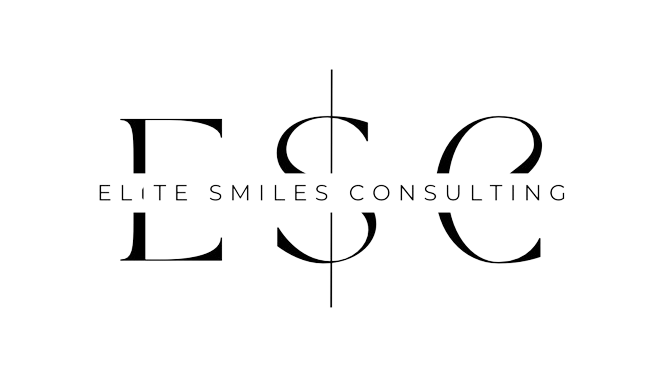Leaders at the production level are adept at identifying opportunities for improvement, streamlining processes, and optimising resources to maximise productivity and output. They provide direction, guidance, and support to their team members, empowering them to perform at their best and achieve their full potential. Production-oriented Leaders inspire motivation, commitment, and a sense of accomplishment among their team by fostering a results-driven culture and celebrating achievements. It’s worth noting that these competencies are all soft skills that can be difficult to assess wordpress team lead in a candidate. For many hospitals and managed care organizations, the more promising strategy may be to invest in cultivating leadership potential in house.
Leadership qualities we need at work
The pivotal role of adaptability in leadership has been well established, with Harvard Business Publishing’s global survey of nearly 1,300 leadership development professionals confirming what we’ve known or suspected. As we face unprecedented technological and social transformation—that 915 experts predicted in a 2021 Pew Research Center report—a new set of leadership capabilities is emerging as the true currency of executive success. For nearly two decades, I have been working with organizations to help them answer these two key questions. Although there are differences from one organization to the next and from one industry to the next, there are some clear and common themes that emerge as they relate to leadership effectiveness.
Career-Focused Reasons To Go Back To Grad School
It does not focus on relationship building, can discourage creativity and innovation, leads to micromanagement, and may lack a cohesive long-term vision or big-picture view. It’s also essential to recognize that leadership is less about one strong or charismatic individual, and more about a group of people working collectively to achieve results together. If you demonstrate several of the characteristics of a good leader, but fail to grasp this key point, chances are you won’t get very far on your own.
Essential Leadership Skills for Workplace Success
For leaders, the rapid pace of change demands that they keep evolving their skillsets. Technology skills will clearly be critical to leaders’ continued success – and they are likely to need robust sustainability knowledge as well. This is because the transactional leadership style leaves very little, if any, room for creativity and innovation.
Impactful Communication
Whether you’re a seasoned Leader or just starting, this blog will assist you in assessing your current Leadership Level. Further, it helps identify the gaps and opportunities for growth and ensures you choose the right actions to elevate your Leadership qualities. Being a strategic decision-maker requires the ability to weigh potential outcomes on the workforce while still balancing the needs of the organizations a whole. Individuals who hold these positions must be ready to gather and analyze statistical data, information from others in the organization, and even third-party consultants. Whether it’s an email, a video chat, or texting, it’s oftentimes best to choose the right delivery method for your circumstances.
- To encourage collaboration among your team, you should be able to delegate strategically.
- The most successful executives in 2025 will be those who can spot these opportunities to align business growth with meaningful impact.
- It means leading a team of committed employees toward a shared goal and creating the ideal conditions in which employees can work toward and achieve this goal.
- In contrast, ineffective leadership can cost companies more than just morale.
- You develop trust.” Leaders who do this are accepted by their direct reports.
The Five Different Leadership Styles
Problem-solving is a key skill for most roles, but when you’re in a position of leadership, it’s even more critical. As an effective leader, you need to be able to carefully assess different situations to determine the best course of action. And if you plan to continue to develop your leadership career, you need to be able to thrive and ride the waves of the changing times, and adapt your skill set accordingly. Incorporating these abilities into your professional development can help you enhance your decision-making, align your organization on common goals, and lead your team to success.
Leaders at this level prioritise productivity, efficiency, and effectiveness, striving to deliver tangible outcomes and measurable progress toward organisational objectives. They set high standards for themselves and their team, establishing clear performance metrics and holding everyone accountable for their contributions. Moreover, they should strive to earn the trust and respect of their team through their actions, decisions, and integrity.
Emotional intelligence refers to the ability to recognize and understand one’s own emotions, as well as the emotions of others. Leaders with high emotional intelligence are self-aware, empathetic, and able to regulate their own emotions in challenging situations. They are also skilled at reading and responding to the emotional needs of their team members, which can help to build trust, improve communication, and foster Coding a positive work culture. So, if you’re aiming to be a standout leader, polishing up on your emotional intelligence really goes a long way. Good communication skills help leaders build trust, foster collaboration, and ensure that everyone is working towards the same objectives.
These encompass lots of skills crucial for leadership, including active listening, teamwork, persuasion, collaboration, and conflict resolution. Whether you’re starting out in an entry-level position and looking to move up the career ladder or you’re seeking a promotion, your leadership skills will be among your most valuable assets. In today’s fast-changing, complex business environment, effective leaders must make strategic decisions quickly—even before any definitive information is available. Permissive-based Leaders encourage creativity, innovation, and initiative among their team members by promoting a culture of trust and psychological safety. They recognise that effective Leadership is not about control or authority but earning permission to lead through character, integrity, and interpersonal skills.

